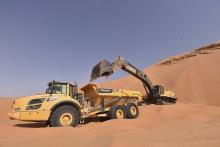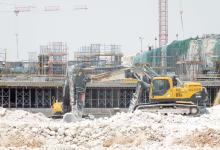Shortages of raw materials, including cement, could harm Kuwait’s booming construction sector.
While contracts worth US$17.5 billion already signed or on offer so far in 2014, shortages of cement and other raw materials could reportedly lead to build delays and cost increases.
In a new report, the value of contracts in the pipeline for 2014 represents more than a 50% increase on $11.17bn worth of contracts awarded in 2013, according to business consultancy Ventures Middle East.
Project values have nearly doubled over the past two years as Kuwait pushes on with infrastructure and housing development, awarding contracts at a pace that outstrips the regional average.
Industry experts say that Kuwait faces strong competition for raw materials in the Gulf construction market. Saudi Arabia, for example, leads the way and has budgeted for up to $700bn worth of works over the next two decades. However, Kuwait is also expected to be a significant market for building materials, with its cement industry set to account for around 10% of the Gulf Cooperation Council (GCC) construction materials market.
On the macro-economic front, supply shortages could increase inflationary pressure - directly through rising materials costs and indirectly should blockages in the supply pipeline slow the delivery of projects, in particular in the residential component of the industry where the private sector is more active.









